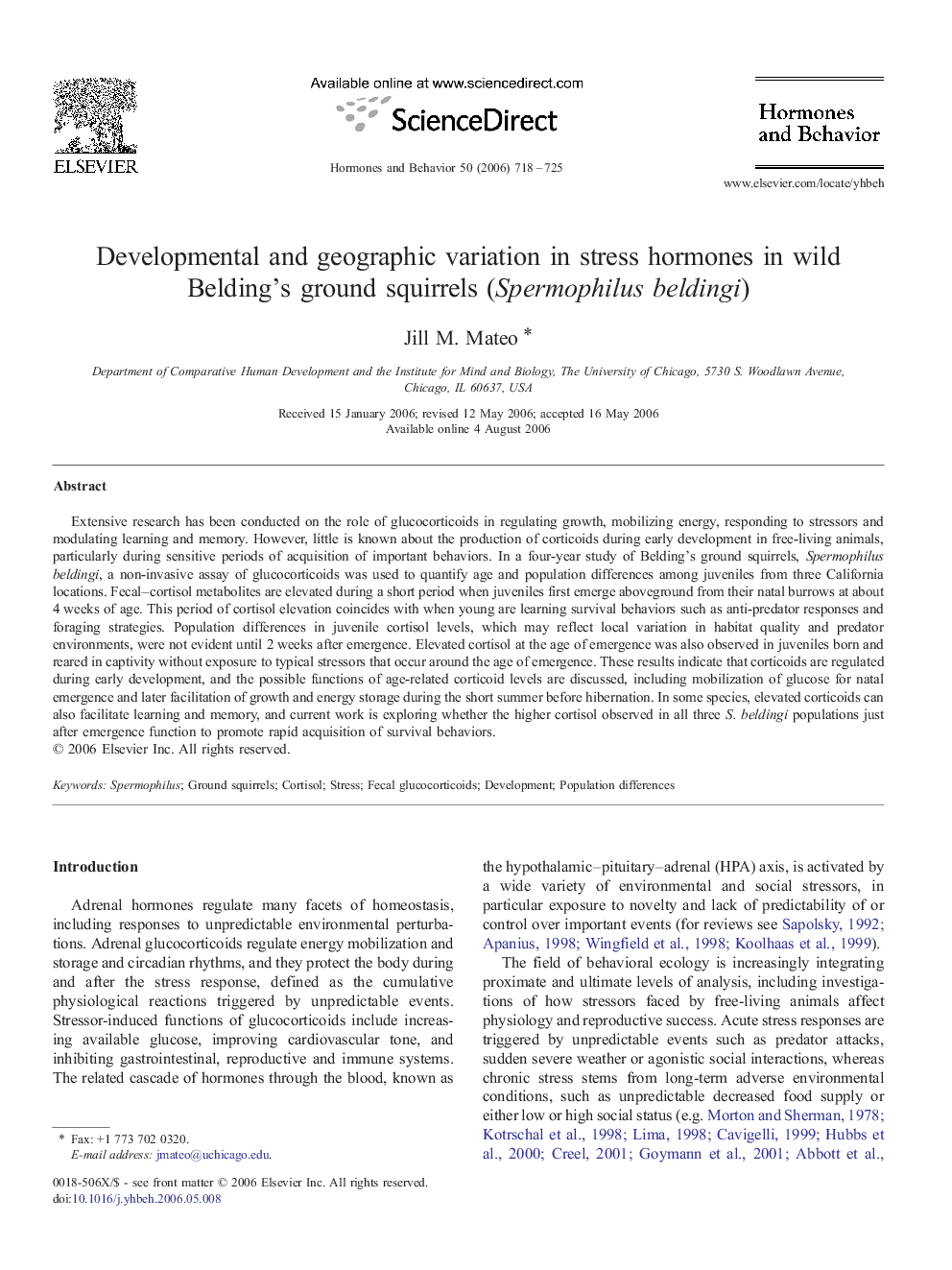| Article ID | Journal | Published Year | Pages | File Type |
|---|---|---|---|---|
| 323882 | Hormones and Behavior | 2006 | 8 Pages |
Extensive research has been conducted on the role of glucocorticoids in regulating growth, mobilizing energy, responding to stressors and modulating learning and memory. However, little is known about the production of corticoids during early development in free-living animals, particularly during sensitive periods of acquisition of important behaviors. In a four-year study of Belding's ground squirrels, Spermophilus beldingi, a non-invasive assay of glucocorticoids was used to quantify age and population differences among juveniles from three California locations. Fecal–cortisol metabolites are elevated during a short period when juveniles first emerge aboveground from their natal burrows at about 4 weeks of age. This period of cortisol elevation coincides with when young are learning survival behaviors such as anti-predator responses and foraging strategies. Population differences in juvenile cortisol levels, which may reflect local variation in habitat quality and predator environments, were not evident until 2 weeks after emergence. Elevated cortisol at the age of emergence was also observed in juveniles born and reared in captivity without exposure to typical stressors that occur around the age of emergence. These results indicate that corticoids are regulated during early development, and the possible functions of age-related corticoid levels are discussed, including mobilization of glucose for natal emergence and later facilitation of growth and energy storage during the short summer before hibernation. In some species, elevated corticoids can also facilitate learning and memory, and current work is exploring whether the higher cortisol observed in all three S. beldingi populations just after emergence function to promote rapid acquisition of survival behaviors.
